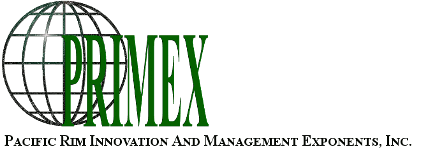
Team Leader Henry Briones confers with UP CPH Statistician Kim Lim Cochon while Project Coordinator Joy Ferriols-Pavico tackles admin matters with Basilan Field Supervisor Harold Hidalgo
Complete Title: SHIELD: Assessment of the Reaching Every Barangay Strategy (REB++) and Assessment of Midwife for Every Community in the Autonomous Region of Muslim Mindanao (MECA)
Duration: 23 November 2012 – 15 January 2013
Location: Philippines (Lanao del Sur, Marawi City, Sulu, Basilan, Tawi-Tawi)
Client: Hellen Keller International
Description:
The SHIELD Project in the Autonomous Region of Muslim Mindanao (ARMM) is a five-year project supported by USAID and implemented within the context of the Philippine Government’s Sector Development Agenda for Health. ARMM, home to 3.3 million Filipinos, is widely recognized to have the poorest health and development indicators among the country’s 16 regions. It has one of the highest fertility rates in the country, the highest proportion of women with unmet need for family planning (FP), and the lowest rate of contraceptive use. These indicators, worsened by extreme poverty, are directly influenced by the high rates of infant and under-five mortality as well as high maternal deaths.
In response to the region’s unique political and cultural environment, SHIELD partnered with the ARMM Department of Health (DOH), provincial and municipal health offices (PHOs/MHOs), local government officials, nongovernment organizations (NGOs), and community organizations.
The Project capitalized and built on proven approaches and strategies, and to improve family health service delivery to a majority of the unserved and underserved populations, particularly in geographically isolated and disadvantaged areas (GIDA) in ARMM, DOH implemented new strategies, namely:
- Reaching Every Barangay (REB++) Strategy and
- Midwife for Every Community in ARMM (MECA).
REB++ is the overarching strategy to ensure that services are provided to the remotest barangay and accessed by every community member. Originally used as a strategy to improve the immunization coverage, REB++ is now utilized in the ARMM to scale up and provide an integrated family planning and maternal and child health services. The approach is best implemented particularly in the hard-to-reach and conflict-affected areas where regular service delivery is highly curtailed.
MECA is a strategy conceptualized with the help of USAID, which leveraged funding to assist the DOH-ARMM in responding to the critical need for midwives especially in farflung villages. MECA midwives were deployed and have been serving different areas of the region in the last two years. SHIELD is now undertaking evaluation and assessment studies on how the REB++ and MECA Project strategies and approaches have been utilized. It is envisaged that two back-to-back assessment studies will be carried out for this purpose.
PRIMEX Team:
Henry Briones – Public Health Evaluation Specialist/Team Leader
